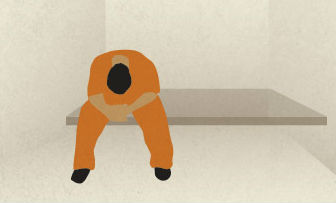Almost five years ago, Missourian Tracy McClard’s 17-year-old son, Jonathan, was tried, convicted and sentenced as an adult for a shooting that seriously wounded the victim. While incarcerated in an adult prison, Tracy McClard said, her son suffered from abuse, depression, and ultimately took his own life.
McClard, who said she believes all kids deserve a second chance, created the National Youth Justice Awareness month where non-profits, community organizations and families would gather to raise awareness about how youth are treated in the adult system.
In October – which McClard is hoping will turn into a nationally recognized month to assist juvenile offenders – there will be various events to mark the effort. There will be, among other things, service days, 5K walks and film screenings across 20 states in the country to generate support and, backers hope, give speed to recent gains made by juvenile advocates.
Just this year, the United States Supreme Court ruled it was not legal to sentence juveniles to life in prison without the possibility of parole in homicide cases. That built on earlier decisions where life without parole was ruled out in non-homicide cases and where death was taken off the books for all juveniles no matter the charge.
The rulings were widely seen as a nod to the notion that children’s minds are not developed to the extent that adults’ are, and that imposing some adult sanctions on youngsters, even in the most heinous of cases, was cruel punishment.
While not all states have moved to adopt rules to reverse the many cases of juvenile lifers, there has been a steady pullback across the country from the tough laws of 20 to 30 years ago that dramatically increased the population of incarcerated juveniles.
Many of these laws stemmed from a fear that a generation of young predators was growing up in America’s cities who would add to the mayhem that saw murders spike during the drug wars of the 1980s and 1990s.
That generation never came to be. But the impact of the laws enacted out of this fear had a long reach and, as the below graphic shows, the ramifications are still being felt today.
 Graphic courtesy of Campaign for Youth Justice/Created by Jason Killinger.
Graphic courtesy of Campaign for Youth Justice/Created by Jason Killinger.
Story from The Chicago Bureau.
